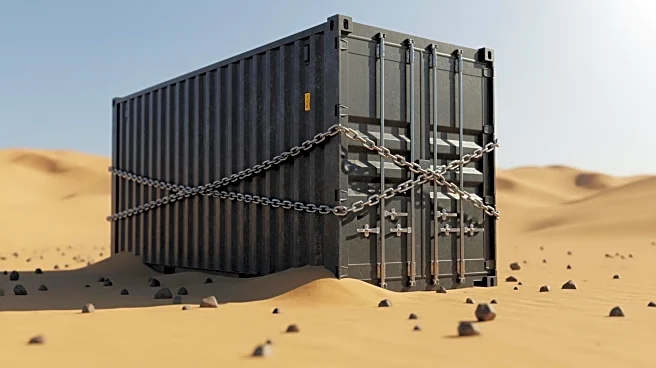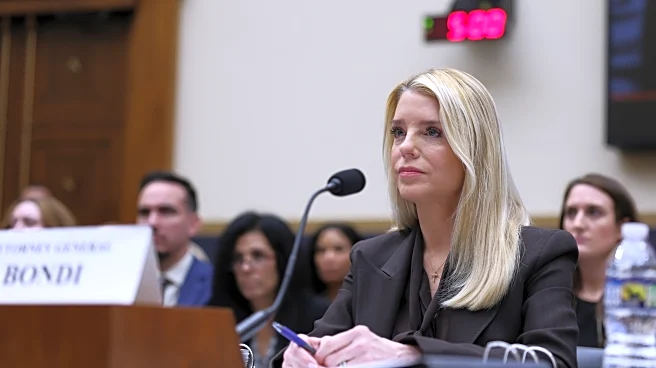What's Happening?
Muhammad Pahlawan, a Pakistani national, has been sentenced to 40 years in a U.S. prison for smuggling ballistic missile parts from Iran to Houthi rebels in Yemen. Pahlawan was apprehended during a U.S. military
operation in the Arabian Sea in January 2024, which resulted in the deaths of two U.S. Navy Seals. The operation uncovered sophisticated Iranian-made weapon systems on Pahlawan's boat, the Yunus. The smuggling operation was reportedly funded and coordinated by two Iranian brothers affiliated with Iran's Islamic Revolution Guard Corps. Pahlawan's crew, who were unaware of the cargo's nature, testified in court, revealing the smuggling route and operations. The U.S. Department of Justice highlighted the significance of the seized weapons, marking the first Iranian-supplied arms intercepted by U.S. forces since the Houthis began attacking vessels in the Red Sea.
Why It's Important?
The sentencing of Muhammad Pahlawan underscores the ongoing geopolitical tensions involving Iran, Yemen, and the U.S. The smuggling of advanced weaponry to the Houthis exacerbates the conflict in Yemen, posing threats to regional stability and international shipping routes. The involvement of Iran's Islamic Revolution Guard Corps highlights the broader implications for U.S.-Iran relations, as the IRGC is designated as a foreign terrorist organization by the U.S. The interception of these weapons by U.S. forces demonstrates the challenges in curbing arms proliferation in conflict zones, impacting global security and diplomatic efforts to resolve the Yemeni civil war.
What's Next?
The sentencing may lead to increased scrutiny and military operations targeting smuggling routes in the Arabian Sea. The U.S. and its allies might intensify efforts to intercept arms shipments to the Houthis, potentially escalating military engagements in the region. Diplomatic pressure on Iran could increase, aiming to curb its support for the Houthis. The ongoing conflict in Yemen may see further international involvement, as stakeholders seek to stabilize the region and prevent the proliferation of advanced weaponry.
Beyond the Headlines
The case highlights the ethical and legal challenges in addressing arms smuggling and its impact on civilian populations in conflict zones. The involvement of unwitting crew members raises questions about the exploitation of vulnerable individuals in illegal operations. The broader implications for international law enforcement and cooperation in combating arms trafficking are significant, as nations seek to balance security concerns with humanitarian considerations.










